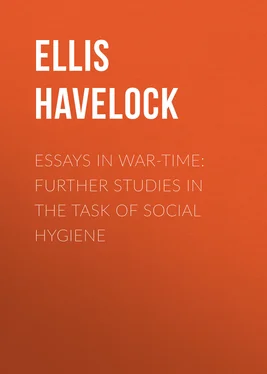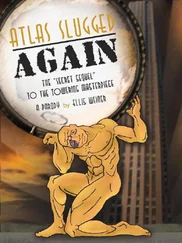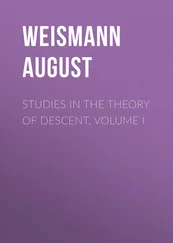Havelock Ellis - Essays in War-Time - Further Studies in the Task of Social Hygiene
Здесь есть возможность читать онлайн «Havelock Ellis - Essays in War-Time - Further Studies in the Task of Social Hygiene» — ознакомительный отрывок электронной книги совершенно бесплатно, а после прочтения отрывка купить полную версию. В некоторых случаях можно слушать аудио, скачать через торрент в формате fb2 и присутствует краткое содержание. Жанр: psy_sex_and_family, foreign_psychology, foreign_edu, на английском языке. Описание произведения, (предисловие) а так же отзывы посетителей доступны на портале библиотеки ЛибКат.
- Название:Essays in War-Time: Further Studies in the Task of Social Hygiene
- Автор:
- Жанр:
- Год:неизвестен
- ISBN:нет данных
- Рейтинг книги:5 / 5. Голосов: 1
-
Избранное:Добавить в избранное
- Отзывы:
-
Ваша оценка:
- 100
- 1
- 2
- 3
- 4
- 5
Essays in War-Time: Further Studies in the Task of Social Hygiene: краткое содержание, описание и аннотация
Предлагаем к чтению аннотацию, описание, краткое содержание или предисловие (зависит от того, что написал сам автор книги «Essays in War-Time: Further Studies in the Task of Social Hygiene»). Если вы не нашли необходимую информацию о книге — напишите в комментариях, мы постараемся отыскать её.
Essays in War-Time: Further Studies in the Task of Social Hygiene — читать онлайн ознакомительный отрывок
Ниже представлен текст книги, разбитый по страницам. Система сохранения места последней прочитанной страницы, позволяет с удобством читать онлайн бесплатно книгу «Essays in War-Time: Further Studies in the Task of Social Hygiene», без необходимости каждый раз заново искать на чём Вы остановились. Поставьте закладку, и сможете в любой момент перейти на страницу, на которой закончили чтение.
Интервал:
Закладка:
These considerations are very elementary, and a year or two ago they might have seemed to many—though not to all of us—merely academic, chiefly suitable to put before schoolchildren. But now they have ceased to be merely academic; they have indeed acquired a vital actuality almost agonisingly intense. For one realises to-day that the considerations here set forth, widely accepted as they are, yet are not generally accepted by the rulers and leaders of the greatest and foremost nations of the world. Thus Germany, in its present Prussianised state, through the mouths as well as through the actions of those rulers and leaders, denies most of the conclusions here set forth. In Germany it is a commonplace to declare that war is the law of Nature, that the "struggle for existence" means the arbitration of warfare, that it is by war that all evolution proceeds, that not only in savagery but in the highest civilisation the same rule holds good, that human war is the source of all virtues, the divinely inspired method of regenerating and purifying mankind, and every war may properly be regarded as a holy war. These beliefs have been implicit in the Prussian spirit ever since the Goths and Vandals issued from the forests of the Vistula in the dawn of European history. But they have now become a sort of religious dogma, preached from pulpits, taught in Universities, acted out by statesmen. From this Prussian point of view, whether right or wrong, civilisation, as it has hitherto been understood in the world, is of little consequence compared to German militaristic Kultur. Therefore the German quite logically regards the Russians as barbarians, and the French as decadents, and the English as contemptibly negligible, although the Russians, however yet dominated by a military bureaucracy (moulded by Teutonic influences, as some maliciously point out), are the most humane people of Europe, and the French the natural leaders of civilisation as commonly understood, and the English, however much they may rely on amateurish methods of organisation by emergency, have scattered the seeds of progress over a large part of the earth's surface. It is equally logical that the Germans should feel peculiar admiration and sympathy for the Turks, and find in Turkey, a State founded on military ideals, their own ally in the present war. That war, from our present point of view, is a war of States which use military methods for special ends (often indeed ends that have been thoroughly evil) against a State which still cherishes the primitive ideal of warfare as an end in itself. And while such a State must enjoy immense advantages in the struggle, it is difficult, when we survey the whole course of human development, to believe that there can be any doubt about the final issue.
For one who writes as an Englishman, it may be necessary to point out clearly that that final issue by no means involves the destruction, or even the subjugation, of Germany. It is indeed an almost pathetic fact that Germany, which idealises warfare, stands to gain more than any country by an assured rule of international peace which would save her from warfare. Placed in a position which renders militaristic organisation indispensable, the Germans are more highly endowed than almost any people with the high qualities of intelligence, of receptiveness, of adaptability, of thoroughness, of capacity for organisation, which ensure success in the arts and sciences of peace, in the whole work of civilisation. This is amply demonstrated by the immense progress and the manifold achievements of Germany during forty years of peace, which have enabled her to establish a prosperity and a good name in the world which are now both in peril. Germany must be built up again, and the interests of civilisation itself, which Germany has trampled under foot, demand that Germany shall be built up again, under conditions, let us hope, which will render her old ideals useless and out of date. We shall then be able to assert as the mere truisms they are, and not as a defiance flung in the face of one of the world's greatest nations, the elementary propositions I have here set forth. War is not a permanent factor of national evolution, but for the most part has no place in Nature at all; it has played a part in the early development of primitive human society, but, as savagery passes into civilisation, its beneficial effects are lost, and, on the highest stages of human progress, mankind once more tends to be enfolded, this time consciously and deliberately, in the general harmony of Nature.
III
WAR AND EUGENICS
In dealing with war it is not enough to discuss the place of warfare in Nature or its effects on primitive peoples. Even if we decide that the general tendency of civilisation is unfavourable to war we have scarcely settled matters. It is necessary to push the question further home. Primitive warfare among savages, when it fails to kill, may be a stimulating and invigorating exercise, simply a more dangerous form of dancing. But civilised warfare is a different kind of thing, to a very limited extent depending on, or encouraging, the prowess of the individual fighting men, and to be judged by other standards. What precisely is the measurable effect of war, if any, on the civilised human breed? If we want to know what to do about war in the future, that is the question we have to answer.
"Wars are not paid for in war-time," said Benjamin Franklin, "the bill comes later." Franklin, who was a pioneer in many so fields, seems to have been a pioneer in eugenics also by arguing that a standing army diminishes the size and breed of the human species. He had, however, no definite facts wherewith to demonstrate conclusively that proposition. Even to-day, it cannot be said that there is complete agreement among biologists as to the effect of war on the race. Thus we find a distinguished American zoologist, Chancellor Starr Jordan, constantly proclaiming that the effect of war in reversing selection is a great overshadowing truth of history; warlike nations, he declares, become effeminate, while peaceful nations generate a fiercely militant spirit. 5 5 D.S. Jordan, War and the Breed , 1915; also articles on "War and Manhood" in the Eugenics Review , July, 1910, and on "The Eugenics of War" in the same Review for Oct., 1913.
Another distinguished American scientist, Professor Ripley, in his great work, The Races of Europe , likewise concludes that "standing armies tend to overload succeeding generations with inferior types of men." A cautious English biologist, Professor J. Arthur Thomson, is equally decided in this opinion, and in his recent Galton Lecture 6 6 J. Arthur Thomson, "Eugenics and War," Eugenics Review , April, 1915. Major Leonard Darwin ( Journal Royal Statistical Society , March, 1916) sets forth a similar view.
sets forth the view that the influence of war on the race, both directly and indirectly, is injurious; he admits that there may be beneficial as well as deteriorative influences, but the former merely affect the moral atmosphere, not the hereditary germ plasm; biologically, war means wastage and a reversal of rational selection, since it prunes off a disproportionally large number of those whom the race can least afford to lose. On the other hand, another biologist, Dr. Chalmers Mitchell, equally opposed to war, cannot feel certain that the total effect of even a great modern war is to deteriorate the stock, while in Germany, as we know, it is the generally current opinion, scientific and unscientific, equally among philosophers, militarists, and journalists, that not only is war "a biological necessity," but that it is peace, and not war, which effeminates and degenerates a nation. In Germany, indeed, this doctrine is so generally accepted that it is not regarded as a scientific thesis to be proved, but as a religious dogma to be preached. It is evident that we cannot decide this question, so vital to human progress, except on a foundation of cold and hard fact.
Интервал:
Закладка:
Похожие книги на «Essays in War-Time: Further Studies in the Task of Social Hygiene»
Представляем Вашему вниманию похожие книги на «Essays in War-Time: Further Studies in the Task of Social Hygiene» списком для выбора. Мы отобрали схожую по названию и смыслу литературу в надежде предоставить читателям больше вариантов отыскать новые, интересные, ещё непрочитанные произведения.
Обсуждение, отзывы о книге «Essays in War-Time: Further Studies in the Task of Social Hygiene» и просто собственные мнения читателей. Оставьте ваши комментарии, напишите, что Вы думаете о произведении, его смысле или главных героях. Укажите что конкретно понравилось, а что нет, и почему Вы так считаете.












